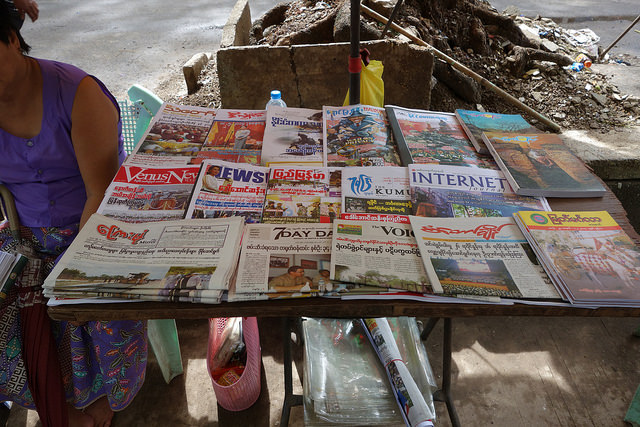In the past two weeks I’ve ticked off two of the nine worst countries for religious freedom, China and Myanmar. I’m now working from Malaysia, which let’s just say is far from perfect.
China is notoriously terrible when it comes to freedom of expression. Malaysia and Myanmar are supposedly better off, at least by the numbers. Despite some recent improvements to press freedom, including the end of pre-publication censorship in Myanmar, both governments continue to lean heavily on sedition laws to stifle dissent.
Repressive regimes often define sedition as any speech or action that might theoretically threaten the legitimacy and authority of their power. In many countries around the world, including the U.S., questioning or challenging state control can lead to fines, imprisonment or death. These states typically point to something like “national security,” flail their arms, and shout “sedition!” or “treason!” or “state secrets!” (or sometimes “blasphemy!”) in an attempt to suppress subversive thoughts.
Last week a court in Myanmar sentenced a reporter, two editors and two former owners of a now-defunct news journal to two years in prison for defaming the state by “publishing a story that upset the Burmese government,” according to local newspaper The Irrawaddy.
These sedition charges came under Article 505(b) of the country’s Penal Code, which punishes people who spread or make statements that might “alarm the public” or “whereby any person may be induced to commit an offense against the state,” according to local media outlet The Democratic Voice of Burma (DVB).
Journalists aren’t the only ones facing sedition charges in Myanmar. Last week the former religious affairs minister Hsan Hsint was sentenced to 10 years in prison for sedition and three years for criminal breach of trust. The sedition charge came for “reportedly saying that the military government ruling the country was ‘fake’ and that only the next military government will be real,” according to DVB.
Hsan Hsint’s lawyer said the sedition charge more likely stemmed from his client’s decision to speak to reporters about a government raid on a monastery, a decision officials say sowed “discord between the government and monks.”
In Malaysia, where I’ve been working since Saturday, there’s been a recent uptick in local officials using the country’s Sedition Act to crackdown on government criticism. About 40 politicians, journalists, activists, lawyers and academics have fallen foul of the law this year alone. To everyday citizens and online media outlets, these cases serve as warning shots, prompting many to think twice before publishing anything that could be construed as “inciting unrest” or insulting the monarchy. Lawyers staged a public protest Thursday calling for the Sedition Act to be repealed.
Myanmar and Malaysia are miles apart in more ways than one. I’m writing this piece using lightning-fast internet at a hipster café in Kuala Lumpur’s central shopping district surrounded by impossibly tall skyscrapers. It’s a far cry from anything I’ve seen in central Yangon. Despite their many many differences, both countries share an ongoing legacy of media suppression that authorities justify to maintain control.
A Malaysian lawmaker said last week that only seditious people are afraid of the country’s Sedition Act. Sounds to me like the classically flawed “nothing to hide, nothing to fear” argument.
As I’ll still be working in Asia for the next few weeks, I should probably conclude by deleting the preceding paragraphs and telling you that everything is perfect in this part of the world.
Move along now. There’s nothing to see here.






